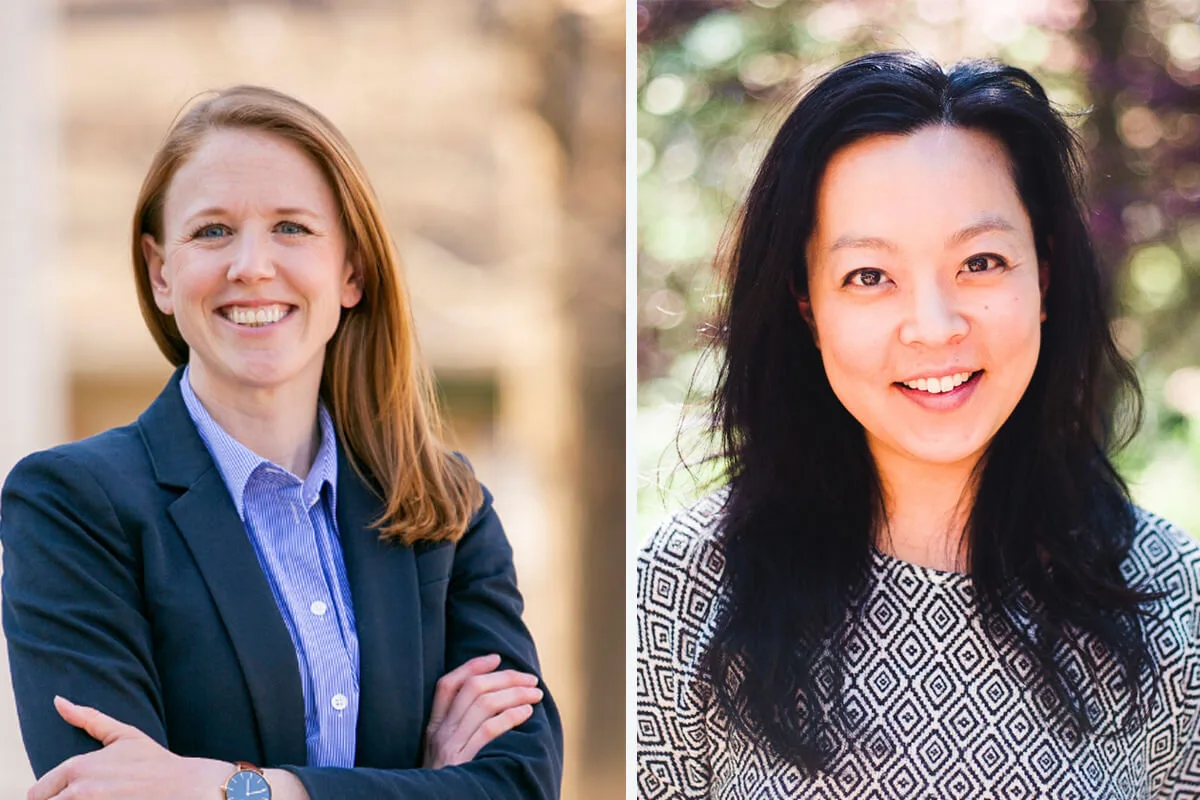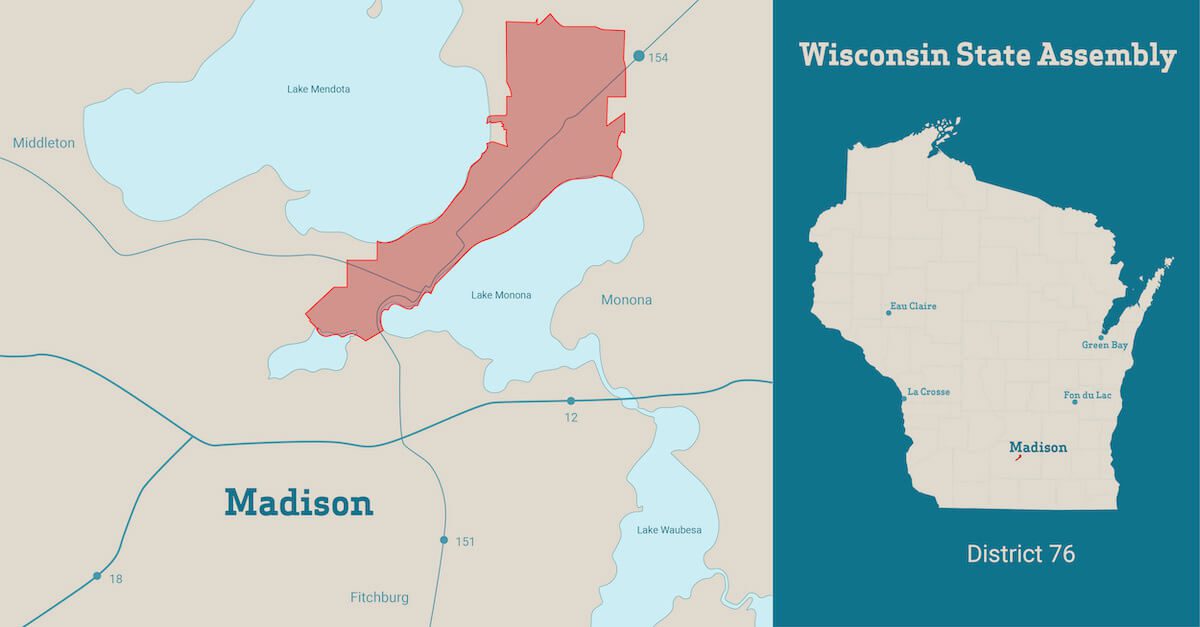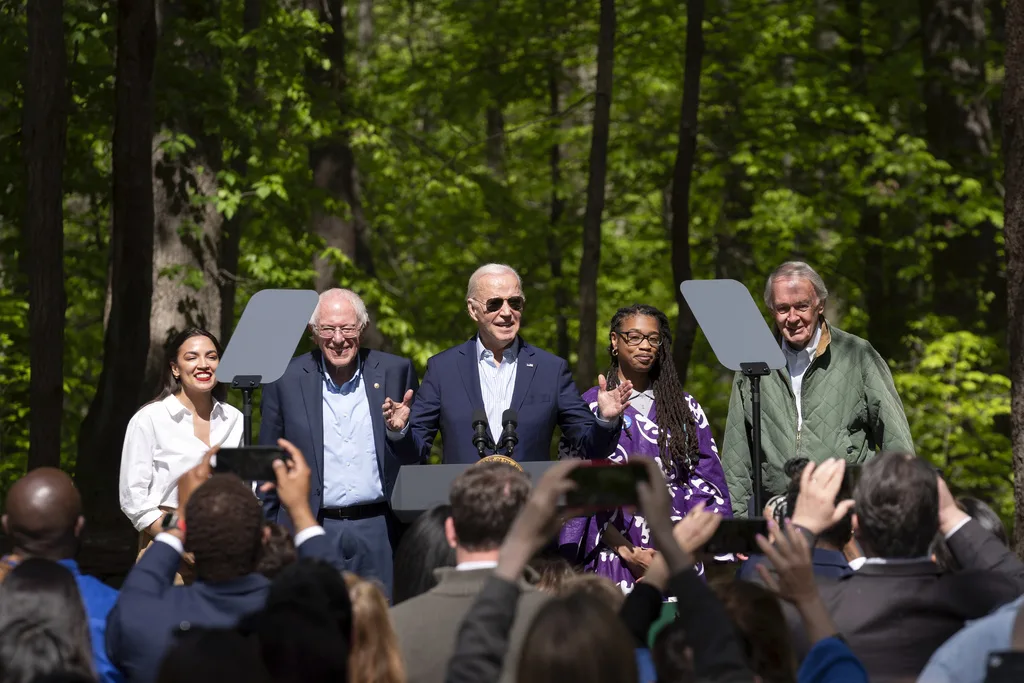
#image_title
#image_title
Seven Democrats are vying for Rep. Chris Taylor’s seat. Here is a look at two of the contenders.
Editor’s Note: Rep. Chris Taylor announced her decision not to seek another term in office at the end of March. She was subsequently appointed by Gov. Tony Evers as a Dane County Circuit Court judge, a position she will start on Aug. 1.
Vying for her seat that covers a majority of Madison’s east side and downtown are seven democrats who will square off in the Aug. 11 primary. The candidates are Dewey Bredeson, Heather Driscoll, Francesca Hong, Ali Maresh, Nicki Vander Meulen, Marsha Rummel, and Tyrone Cratic Williams. Profiles will post Wednesday, Thursday, and Friday.
Click HERE to read profiles of Bredeson and Driscoll.
Click HERE to read profiles of Rummel, Vander Muelen, and Cratic.
UpNorthNews: What is the top issue facing the people in your district?
Francesca Hong: My district, like so many across the state, are combating two major public health crises: racism and the Covid-19 pandemic. Issues like accessing healthcare and health insurance, income inequality, and access to affordable housing have been exacerbated by a clear lack of leadership and cooperation from multiple levels of government. This district is also deeply concerned about climate justice and rebuilding an equitable economy.
UNN: Describe what unique life experiences would make you both an empathetic and effective lawmaker.
Francesca Hong: As a mom, service industry worker, and community organizer I haven’t followed the trajectory or the playbook for how one is elected to office, but I’m in a unique position to make connections with communities across the state because as a daughter of immigrants, someone who has relied on Badgercare, worked minimum wage jobs and lived paycheck to paycheck. I have felt those burdens and fears. I still do.
When the pandemic hit, I co-founded Cook It Forward, an end-to-end donor to distribution network that is helping to solve food insecurity in Madison by reducing the pandemic’s economic devastation on farmers, restaurants, food pantries, and nonprofits through an equity lens. We ensure food gets into the hands and homes of Madison’s most vulnerable who lack access to traditional food sources through no fault of their own. We need leadership now who is both a part of and enables coalition building to strengthen and invest in our communities. In the end this isn’t about me. It’s about all of us fighting together.
UNN: Gov. Tony Evers and Lt. Gov. Mandela Barnes introduced a package of nine bills on June 19 aimed at reforming police transparency and accountability in response to ongoing protests over the murder of George Floyd. Do you believe this package does too little?
Francesca Hong: The package takes practical first steps in addressing police brutality and reforming the police. However, we need to completely re-evaluate the role of police and provide sustained resources to local municipalities to reinvest the police budget and create a commmy-run, community-controlled safety program. Police make up almost 50 percent of the city of Madison’s budget.
We need to reinvest these funds into existing social services with proven track records for helping the most vulnerable, programs like The Rainbow Project who will be celebrating their 40th year of operations. They’ve had a waitlist every year and to me that shows how far we’ve digressed in our budget decisions.
Investing in social services for domestic abuse cases, housing insecurities, and child welfare is proven to help neighborhoods reduce crime. We must also dismantle police unions, the only unions safe after Act10, and work to build transparent accountability boards across the state. More police training is not the answer to building transparency and accountability.
We need to explore reassigning police to different community roles and invest in relationship building with neighborhoods, including having officers help to clean up and rebuild neighborhood sites and structures. Most importantly, all of these resolutions to make our communities safer must be assigned to actual representatives of the communities.
UNN: Funding for K-12 education is an ongoing issue in Wisconsin, now exacerbated by the need for virtual learning due to COVID-19. What do lawmakers need to pass to ensure that low income students in your district are not left behind?
Francesca Hong: Every child has a right to high-quality, public education. We must collectively value this as a state by prioritizing k-12 funding and ensure our local municipalities are receiving sustained funding needed to implement anti-racist curriculum, professional development, and mental health services. Broadband expansion also needs to come from both the state and private sectors so virtual learning is easily accessible in marginalized neighborhoods.
For many low income households, students relied on schools to provide a healthy learning environment because, due to no fault of their own, learning at home provides more challenges than their white and higher-income student counterparts. So in conjunction with expanding broadband there needs to be policies that build communication infrastructures that make social services more accessible to families to help them create good learning environments at home.
We also need to look at long term recovery in rebuilding our public education system and we can do that by heavily investing in our university system so they can recruit BIPOC students and graduate students for educational policy departments to develop structures through a more equitable lens. Equity comes with representation so future investment in BIPOC teachers and making sure these teachers have an active voice and role in policy decisions is imperative.
UNN: Your district includes a portion of Dane County, which has the highest infant mortality rate for Black babies in the country. What could you do as a member of the Legislature to begin to address this problem?
Francesca Hong: We need to reach out to the capable and strong leaders in communities of color in my district and find sustained funding for the non-profits and grassroots organizations working, and who have worked for years to combat these issues. Here in Madison there is Urban Triage, Freedom Inc., and the Harambee Village Doulas working to fight these numbers, and more importantly provide high- quality and equitable care for Black mothers.
There is talent, knowledge, and a deep understanding that exists in community-led coalitions, especially one led by Black women, and organizations that need more financial resources. There also needs to be more professional development led by Black and brown healthcare experts.
I will also fight for access to higher education opportunities in healthcare for BIPOC students because representation is one of the most powerful ways we can start building equitable systems of care. Our communities of color understand the needs of their community better than any lawmaker and it’s due time we prioritize their asks and empower people to be their own agents of change so Dane County and the rest of Wisconsin is no longer last in the fight for racial equity and justice.

UpNorthNews: What is the top issue facing the people in your district?
Ali Maresh: We must address the political gridlock and put people over politics. We’re seeing the devastating effects of what happens when government officials cannot work together. In order to advance the bold and progressive legislation our residents desperately want to see (e.g., healthcare access, police reform, environmental protections), we need a representative who can effectively legislate within the minority party.
UNN: Describe what unique life experiences would make you both an empathetic and effective lawmaker.
Ali Maresh: Most recently, I worked for the State of Wisconsin under both administrations on mental health initiatives. I will draw on this institutional knowledge to effectively fight for the issues and needs of residents in the 76th Assembly District.
In addition to my experience with the government, I have spent my career working with students. I taught a journalism course at Madison College, where students were asked to critically analyze the media’s impact on society. I have worked as an international student advisor at UW-Oshkosh and Georgetown University. Working with students from a variety of backgrounds has given me a skillset that will allow me to be a more empathetic lawmaker who can effectively listen to the needs of district residents and advocate on people’s behalf.
UNN: Gov. Tony Evers and Lt. Gov. Mandela Barnes introduced a package of nine bills on June 19 aimed at reforming police transparency and accountability in response to ongoing protests over the murder of George Floyd. Do you believe this package does too little? Explain.
Ali Maresh: I fully support the package of bills. However, we have to do more. It’s time to reallocate funds from police departments and invest in communities. This will better serve the public. Policing decisions should be made by the community, not the bureaucratic systems that have led to our devastating incarceration rates. Reallocating these funds means hiring more social workers, investing in education, increasing economic opportunities, and meeting the specific needs of the community.
I also believe the Wisconsin Legislature should pass AB 933, which would fund the creation of community restorative courts and I’m an advocate for eliminating cash bail.
UNN: Funding for K-12 education is an ongoing issue in Wisconsin, now exacerbated by the need for virtual learning due to COVID-19. What do lawmakers need to pass to ensure that low income students in your district are not left behind?
Ali Maresh: Education is critical to our recovery efforts. This means the state government needs to increase funding to schools to provide the services and support students need. That’s why the government should provide funding so all students have access to the adequate technology.
We should also look to innovative solutions like creating a mentorship program so that students have additional support during this time. It will also be critical to involve the educators in every step of the planning process. Educators should have the flexibility to design lessons that work best for their students and their pedagogical approaches.
UNN: Your district includes a portion of Dane County, which has the highest infant mortality rate for Black babies in the country. What could you do as a member of the Legislature to begin to address this problem?
Ali Maresh: This is an urgent public health issue and I would immediately fight for the Healthy Women Healthy Babies initiative that was proposed in the 2019-2021 Budget. This would include: creating an Infant Mortality Prevention Program at the Department of Health Services, allowing doula services to be reimbursed through Medicaid, increasing funding for the Minority Health Grant, allowing postpartum coverage for mothers enrolled in Medicaid; and restoring funding for Planned Parenthood.
Politics

New Biden rule protects privacy of women seeking abortions
Under the new rules, state officials and law enforcement cannot obtain medical records related to lawful reproductive health care with the goal of...

Biden marks Earth Day by announcing $7 billion in solar grants
The Biden administration on Monday announced the recipients of its Solar For All Program, a $7 billion climate program that aims to lower energy...
Local News

Stop and smell these native Wisconsin flowers this Earth Day
Spring has sprung — and here in Wisconsin, the signs are everywhere! From warmer weather and longer days to birds returning to your backyard trees....

Your guide to the 2024 Blue Ox Music Festival in Eau Claire
Eau Claire and art go hand in hand. The city is home to a multitude of sculptures, murals, and music events — including several annual showcases,...



